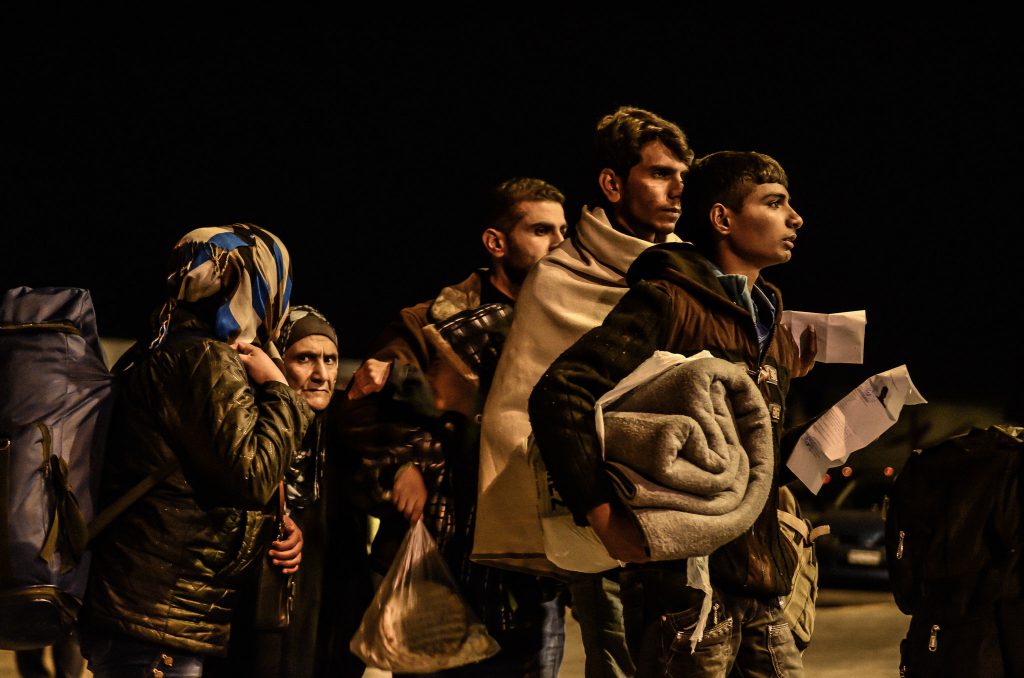Today, on World Refugee Day and after the conclusion of the Brussels VII Conference on the Future of Syria, we call on the international community and the EU to respect the rights of the Syrian refugees. Facing an escalation of attacks and deportations in many countries of the region, Syrians remain in need of protection!
Starting from mid-April 2023, Syrians have been subjected to arbitrary raids by the Lebanese authorities across the country. The authorities detained them and arbitrarily deported at least 874 people to Syria, handing them over to the Syria authorities across the Wadi Khaled, al Qaa and the Masnaa border crossing points. Among the people who were deported, some were also arrested by the Syrian Army upon return to Syria.
Syrians have been at the centre of a rising anti-refugee rhetoric during the latest elections in Turkey. Deportations – or so-called “voluntary returns” – have been key slogans in the electoral campaign on both sides. This comes as an escalation of years-long limitation of rights and plans to forcibly relocate hundreds of thousands of Syrians in Syria. With Erdogan’s victory and his commitment to restore relationship with Syria, the fear of being subjected to these “voluntary returns” is ever more present.
Hate speech and forced returns have become real dangers in the daily life of Syrians in Lebanon and Turkey, leaving them in a state of constant fear, and forcing them to adopt mitigation strategies, including by remaining hidden at home. Syrian refugees have become scapegoats for these countries’ socio-economic and political crises, rising inflation, cost of living and lack of access to basic services that impact the most vulnerable sectors of the population.
Despite repeated human rights violations in all areas of Syria, including many still amounting to crimes against humanity, and war crimes, countries in the EU are also pushing for the returns of Syrians. Denmark has, for instance, declared that two more areas of Syria, Tartous and Latakia, are “safe” for returns, in addition to Damascus and Rif Damascus which were controversially declared “safe” in 2019. Cyprus has taken part in chain-refoulement to Syria. The EU and European states also fund border enforcement programs in the region, which lead to deportations to Syria. These measures, which increase the difficulties to flee dangerous situations in neighbouring countries must stop and these countries should be considered as they are: unsafe.
Due to the lack of protection and harsh living conditions faced in neighbouring countries, the lack of resettlement or other legal pathways to seek asylum and the increasing regional pressure on returns to Syria, more and more are left with no options other than boat migration along routes made deadly by European border enforcement policies. An example is latest deadly shipwreck last week off Greece – probably the deadliest in the Mediterranean since 2015 – which caused hundreds of deaths and disappearances, including many women and children, who had departed from Tobruk, Eastern Libya, and were mainly Syrians, Egyptians and Pakistanis. In 2022, Syrians were the fourth nationality reaching Italy by boat mostly from Eastern Libya but also from as far as Turkey and Lebanon.
In this bleak picture, it is important that the international community and the EU take a strong and firm position against returns to Syria. They must also ensure that none of their fundings lead to human rights violations in neighbouring countries, nor in deportations to Syria. Unfortunately, in the latest Brussels VII Conference on the Future of Syria the total amount of pledges diminished compared to previous years.
On World Refugee Day, EuroMed Rights calls on the international community to respect the fundamental principles of the right to asylum and non-refoulement and to pressure Turkish and Lebanese authorities to cease violations on Syrians. There is an urgent need for a wider access to protection, resettlement and other legal pathways to reach safety and to immediately halt any attempts to declare (parts of) Syria as safe for returns.
Watch EuroMed Rights’ webinar ahead of the Brussels VII Conference on Syria: “Dead on the land and dead at sea: no alternatives for Syrian refugees in Lebanon”.

